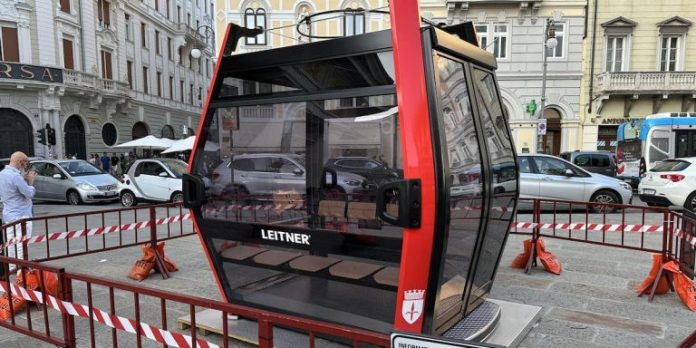by InTrieste
Funding for Trieste’s long-debated cable car project—intended to link the city’s waterfront at Molo Quarto with the upland district of Opicina via Bovedo—will be disbursed in installments beginning in 2027, according to newly disclosed government documents.
The revelation comes from Lista Russo – Punto Franco, an opposition group in the Trieste City Council, which recently gained access to the official financing decree issued by Italy’s Ministry of Infrastructure and Transport. The total budget allocated to the project remains €48 million, but it will be distributed over eight separate installments, with the first payment of €2.5 million scheduled no earlier than 2027.
“This is not an upfront investment,” the group noted, likening the funding structure to “installment payments for a mattress.” The phased disbursement contrasts with earlier expectations that financing would be more immediate and robust, potentially accelerating the timeline for construction.
In addition to the funding delay, the project now faces another legal hurdle. A new administrative appeal has been filed with the Lazio Regional Administrative Court (TAR), marking the latest in a series of legal challenges that have surrounded the controversial infrastructure plan. Details of the appeal have not yet been made public, but previous suits have focused on environmental impact concerns and procedural transparency.
The cable car, originally proposed as a sustainable transportation alternative to ease traffic congestion and improve connectivity between central Trieste and its higher-altitude neighborhoods, has long divided public opinion. Supporters argue it could reduce vehicle use and promote tourism, while critics question its necessity, cost, and environmental footprint.
City officials have yet to comment on the most recent developments. The Ministry of Infrastructure and Transport has also not issued a formal response.
If approved and fully funded, the cable car would become one of the most ambitious urban mobility projects in the region. But with funding postponed and further legal scrutiny underway, its future remains uncertain.






























